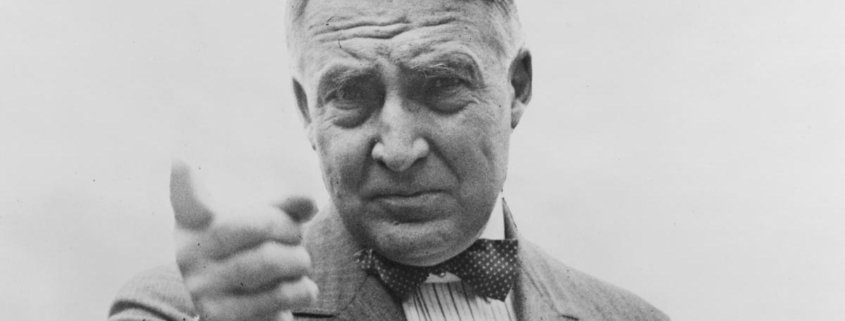President Harding, Doctor Fauci, and a Return to Normality
For every Lincoln and Roosevelt there have been many other presidents content to blather their way through office. Few did as much damage to our language as a former Ohio newspaper editor whose speeches, a contemporary wrote, sounded like “an army of pompous phrases moving across the landscape in search of an idea.”
Recently I was pleasantly surprised—no, elated—when out of the army of pompous phrases emanating from a presidential task force briefing emerged Dr. Anthony Fauci with the term “normality.” I had long ago given up expecting to hear that word from a public figure or anyone else thanks to Warren Harding.
While running for president in 1920 Harding repeatedly promised “a return to normalcy” to a war-weary nation. (Listen to a recorded version of the speech at the Library of Congress.) Indeed, Americans wanted normality so much that they made Harding president and adopted his verbiage as well. The 29th President is not entirely to blame. According to the Oxford English Dictionary the term first appeared in 1857. But, as the British Society for Pure English put it in 1929, “if…‘normalcy’ is ever to become an accepted word it will presumably be because the late President Harding did not know any better.”
He did not. Nor, apparently, do the populous, the press, or our public servants. An online search yields a few mentions of “normality,” mostly in UK publications. In America the term has been has been nearly obliterated by “normalcy.” What steeled Fauci to gain and retain his hold on “normality?” Perhaps it was the undergraduate education steeped in the classics or family devotion to the liberal arts that the NIH scientist discusses in this oral history. And perhaps, if a few more voices reject this legacy of one of our worst presidents, there will one day be “a return to normality.”


